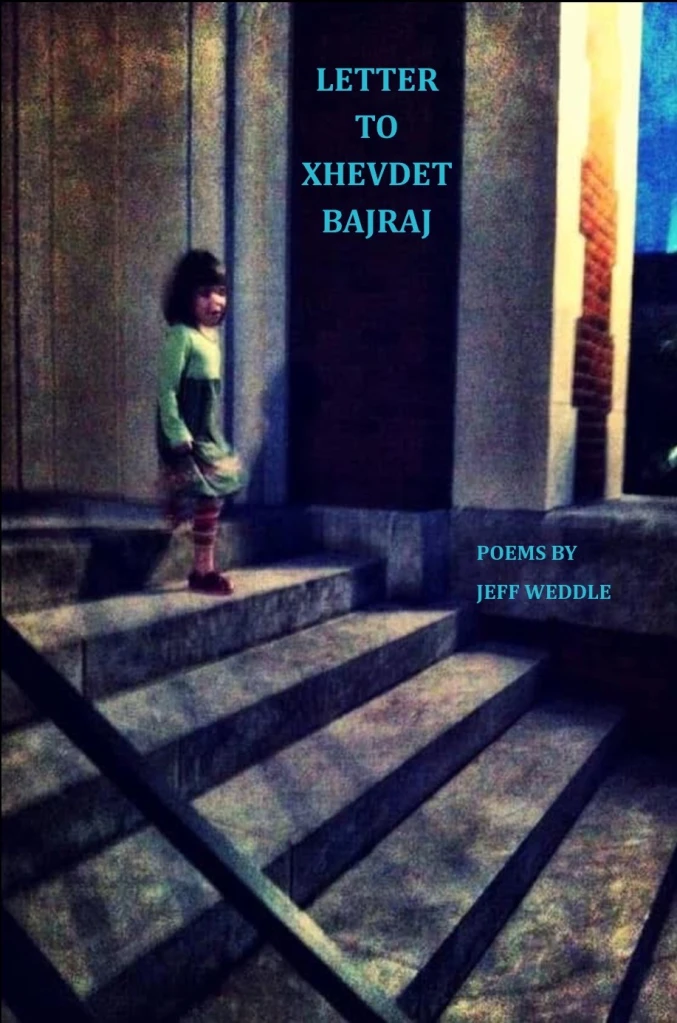
Review
How Newness Sings: Mud Ajar
by Hiram Larew
Atmosphere Press
EAN/UPC: 9781639446384
Review by Toti O’Brien
Hiram Larew’s fifth poetry collection was birthed during the pandemic, mostly (says the publisher’s note) during “outdoors rambles” rather than within homebound insularity. En plein air inspiration injects the verse with optimism, with a sense of hope that the awareness of collective hardship only makes keener, shinier.
Mud Ajar is a book of consummate wisdom derived from assiduous communality with nature, land, planet—wisdom, though, with no sadness attached, or with the kind of sadness that its very formulation dispels, soft melancholy transcended by its sheer enunciation.
We can’t be exactly sure of what mud ajar is, but we guess those fine cracks in the ground are the place, quoting Leonard Cohen, “where light gets in.” They are the openings through which seeds get into the ground, out of which the new growth comes forth.
Larew’s brisk, lively nature poems are a synesthetic triumph. The five senses constantly interact, overstepping boundaries, happily exchanging their gifts. We hear the sounds of light in their infinite variations, we see the precise tint of a gesture, the shape of thoughts.
In “Conjure,” Larew seems to hand the reader a key:
Pretend that there’s a tune inside this line
Pretend there’s a wide-open humming window right there
or a whistle that’s weaving in and out
of each of these written trees –
[…]
Imagine that there’s a rain-drip background to these words
the springtime kind that must be touched
yes
with colors humming the pages’ corners
Imagine that
Most frequently, Larew’s nature comes to the page unfiltered—a moving, kaleidoscopic reflection constantly deconstructed into tiny particles let free to spin around, then rearranged to form ever-changing constellations. Rather than organized in separate frames, the world is caught in its perpetual vibration, and the perceiving-self tunes in, effortlessly aligning wavelengths. Therefore, outer and inner landscapes become one without need for metaphors. They simply coincide.
So, Larew’s impressionistic brush strokes paint an intricate, yet perfectly intuitive map of land, water, bird, wood, stone, simultaneously tracing a diagram of feelings evolving, an intimate cartography.
From “Chair:”
Like you
I am whoever
loses clouds
or sits on branches
[…]
Then I end up where I become
forest duff like you
or moss loving what’s skyward
From “This Where:”
The roots I sing inside myself
I’ve always longed to be
The leaning sheds that are my life
The straw I’ve gathered round
to family forth
and all these wings that marry me
“The dynamic quality of the verse is so powerful, it overflows. It’s the exuberance of life unstoppable, claiming its right over obstacles, crises, chasms, or frontiers.”
Language is inflected both by the sensorial porousness, and by the suppleness of inside/outside borders. Its structure becomes accordingly loose. Rather than securely attached, words gravitate towards each other by laws of magnetic attraction. They dance, sometimes holding hands, sometimes simply orbiting within the same atmosphere.
Nouns, adjectives, and adverbs wear their respective roles with flexible grace, and nonchalantly navigate grammatical rules. Mostly, they express sheer meaning, with little concern for syntactic etiquette. Quintessentially, though, Larew’s is a poetry of verb.
From “Gathered Gate:”
This finally swung-out open swoop
the teasing pink of stems
that hover gully pools
as wanting will
or could be does
and always has.
Everything on the page is in motion, vitally propelled by momentum. All is action, progress, direction. All becomes. Experience is acquiring, never acquired.
From “Back to Me:”
What would I remember —
the touch of what I couldn’t say
the sounds I’ve always wanted
or the maps left unopened
The dynamic quality of the verse is so powerful, it overflows. It’s the exuberance of life unstoppable, claiming its right over obstacles, crises, chasms, or frontiers. Claiming it without fanfare, often sotto voce or invisibly, infrared, ultraviolet, in the nick of time, in the hiatus between now and now, in a nanosecond. Interstitial, as the title implies, and yet irresistible.
From “Bread in Hand:”
But even after all of this
farmers keep farming
for every one of us
They bend the sun
and raise the earth
each day for us
They round each rough
and tamp down this fears
for each of us
Yes after all of this
About the Author
 Toti O’Brien is the Italian Accordionist with the Irish Last Name. Born in Rome, living in Los Angeles, she is an artist, musician and dancer. She is the author of Other Maidens (BlazeVOX, 2020), An Alphabet of Birds (Moonrise Press, 2020), and In Her Terms (Cholla Needles Press, 2021).
Toti O’Brien is the Italian Accordionist with the Irish Last Name. Born in Rome, living in Los Angeles, she is an artist, musician and dancer. She is the author of Other Maidens (BlazeVOX, 2020), An Alphabet of Birds (Moonrise Press, 2020), and In Her Terms (Cholla Needles Press, 2021).



